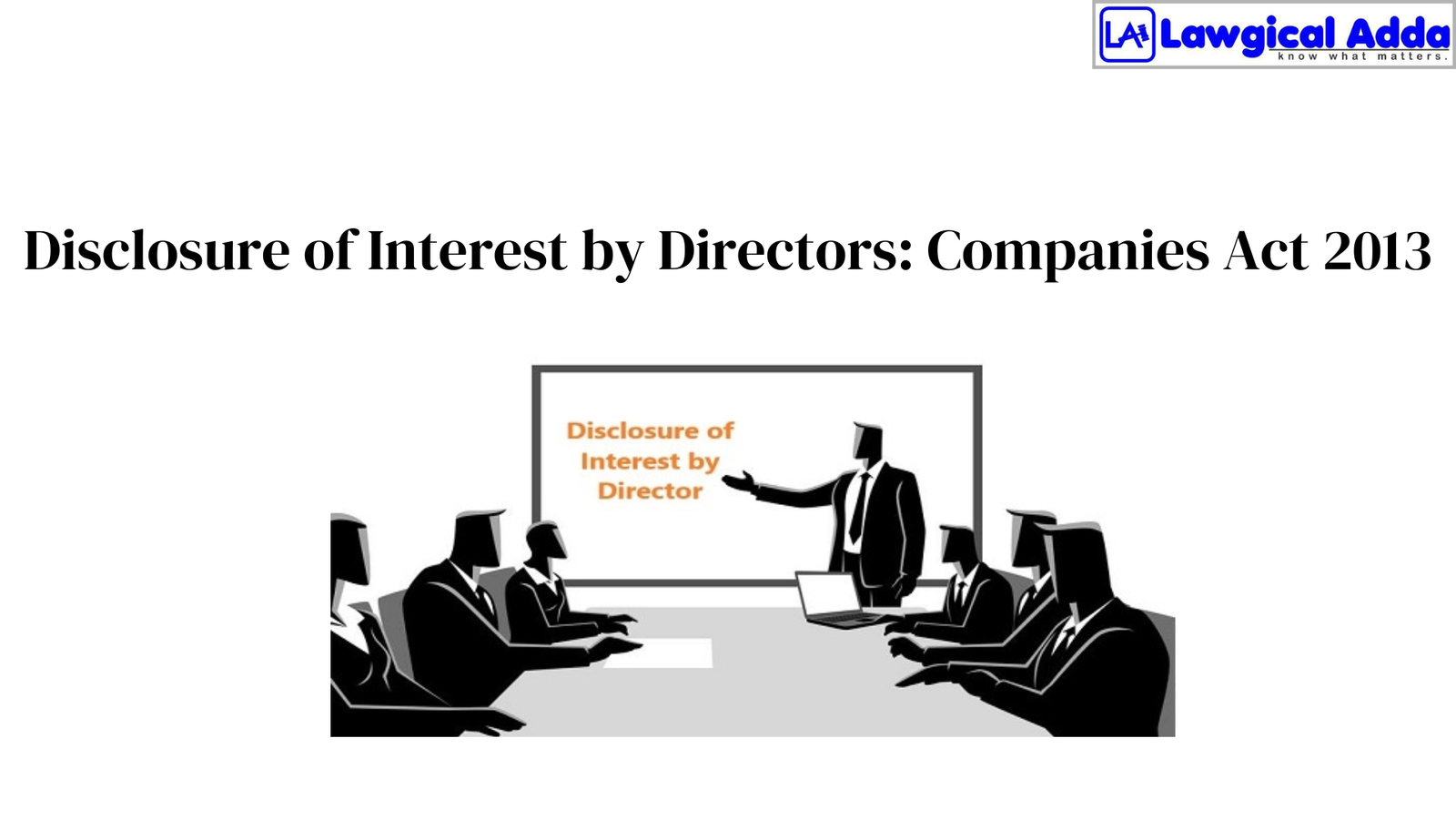Disclosure of Interest by Directors: Companies Act 2013

Table of Contents
Introduction
The New Act’s “Disclosure of interest by directors” is covered in Section 184. The purpose of Section 184 of the New Act is to notify the directors of any conflict of interest and responsibility about any of their fellow board members.
The provisions stem from the idea that a director cannot deal with himself on behalf of the company or engage in activities where his interests conflict with, or potentially conflict with, the interests of those he has a fiduciary duty to protect.
Disclosure of Interest by Directors Companies Act 2013 Format
The Chairperson advised the Board that the contracts and arrangements in which the Directors have an interest must be disclosed by section 184 of the Companies Act, 2013.
By Section 184 of the Companies Act of 2013 as well as Chapter XII (Meeting of Board and its Powers) Rules of 2013, contracts must be registered, with the details outlined in the rules mentioned above being entered, and Form MBP-1, in which each Director is interested, must be submitted.
The specifics of such contracts must be recorded in the Register and signed by each director present at the Meeting by Section 189 of the Companies Act of 2013. As a result, the Board was presented with the Register, which was then marked and signed.
The following resolutions were approved following discussion:
- “RESOLVED THAT by Section 184(1) of the Companies Act, 2013 and Rule 9(1) of the Companies (Meeting and Powers of Board) Rules, 2014, read at the meeting, the disclosures of interest and shareholding received in Form MBP-1 from all Directors of the Company be noted.”
- “Furthermore, it is resolved that the Register of Contracts in Form MBP-4, which is necessary by Section 188 (1) and Rule 16(1) of the Companies (Meeting and Powers of Board) Rules, 2014, be and is hereby noted, and the signatures of all the Directors present thereat be and at this moment obtained on the Register.”
Disclosure of Interest by Directors Companies Act 2013 – Announcement and Time
Section 184, subsection {1}, addresses the disclosure of interest that the director must make. According to its provisions, each director must disclose their:-
- worry or
- interest in any of the subsequent organizations:
- business or businesses or
- corporate bodies, or
- businesses, or
- another group of people.
Notably, his shareholding will also be a concern or interest. The disclosure must be provided per any guidelines the Central Government may specify. {Prescribed already under Companies (Meetings of Board & its Powers) Rules 2014}.
However, the subsection itself specifies when the disclosure must occur. Therefore, the following will be disclosed:
- During the Board of Directors inaugural meeting, in which he serves as a director and
- Afterwards, at the Board’s first meeting, which is held during each fiscal year or
If the disclosures that have previously been made altered, they will be discussed at the first board meeting following the modification.
The primary prerequisite is that the director must be interested in one or more entities; only at the designated board meetings may he reveal after that.
While the word “interested director” is defined in Section 2 {49}, neither “concern” nor “interest” are defined. The nature of the concern or interest must be communicated; pertinently, merely disclosing an interest is insufficient.
Turnbull v. West Riding Athletics Club Leeds Ltd 1894 WN4 was the case. This will sufficiently highlight instances where the director’s interests conflict with his fiduciary duties as a director and shield the company from such conflicts.
Conclusion
By preventing conflicts of interest, directors’ disclosure of interests is the most critical first step in executing their statutory obligations. It contributes significantly to the establishment of corporate governance. All directors shall adhere to it in text and spirit at all times.
If you’re looking to register a Section 8 Company, Public Limited Company, or Private Limited Company, or need assistance with checking company name availability, reach out to Lawgical Adda for expert support.
Contact LawgicalAdda’s incorporation experts to learn more about the finer points of a Limited Company process.
Lawgical Adda’s solution provides end-to-end corporate governance and secretarial compliance management, encompassing every phase of the entity life cycle.
Don’t hesitate to contact us if you want more information on the compliance standards and to outsource them to us.







